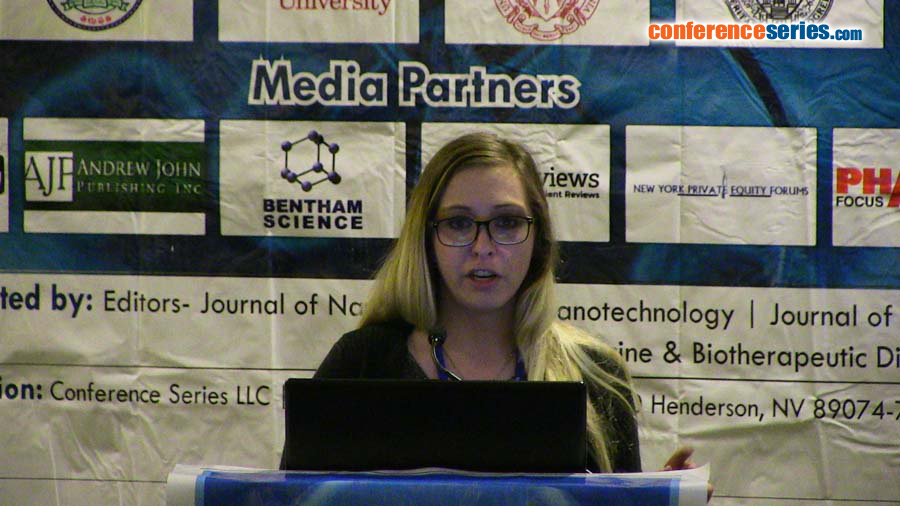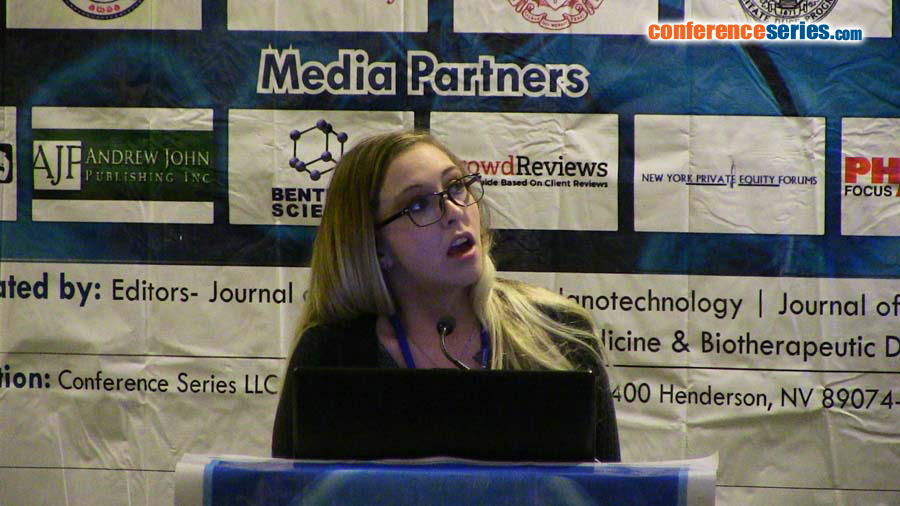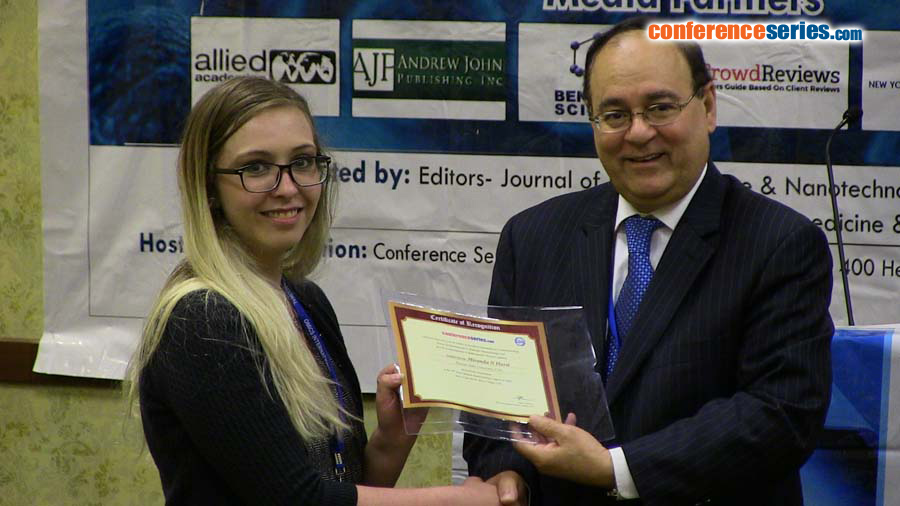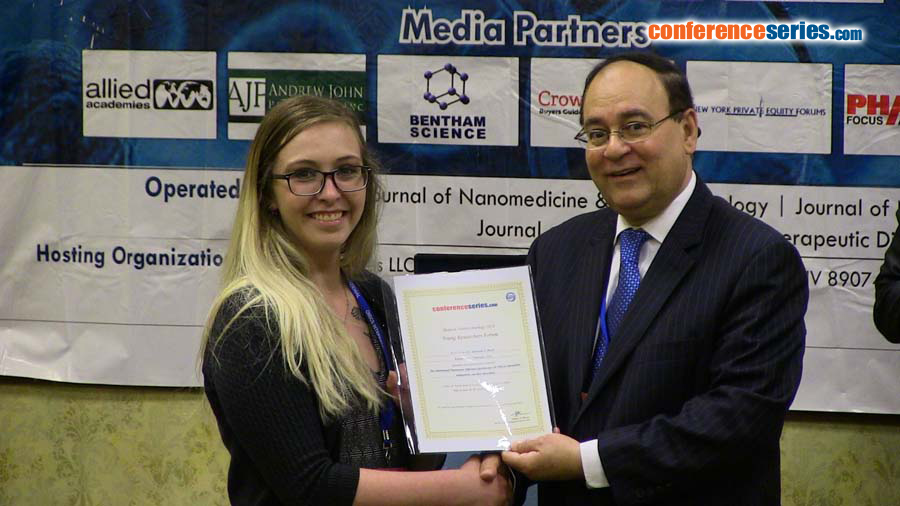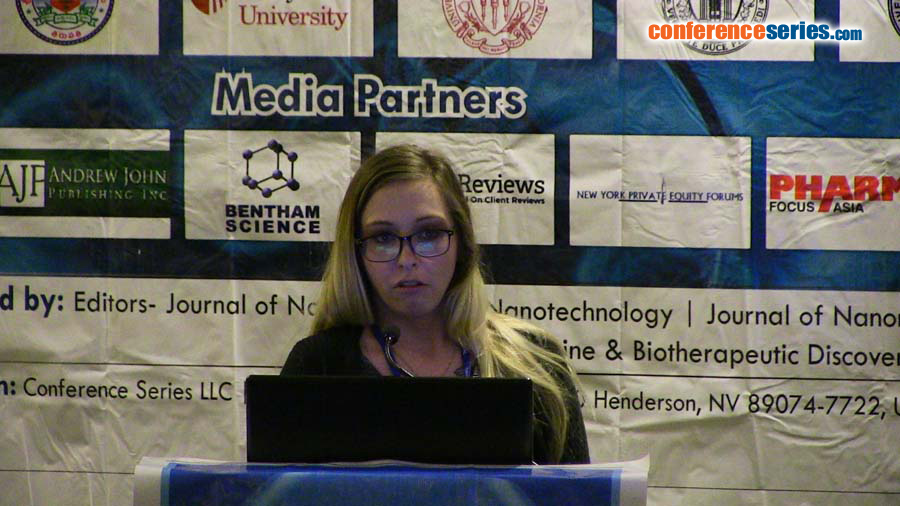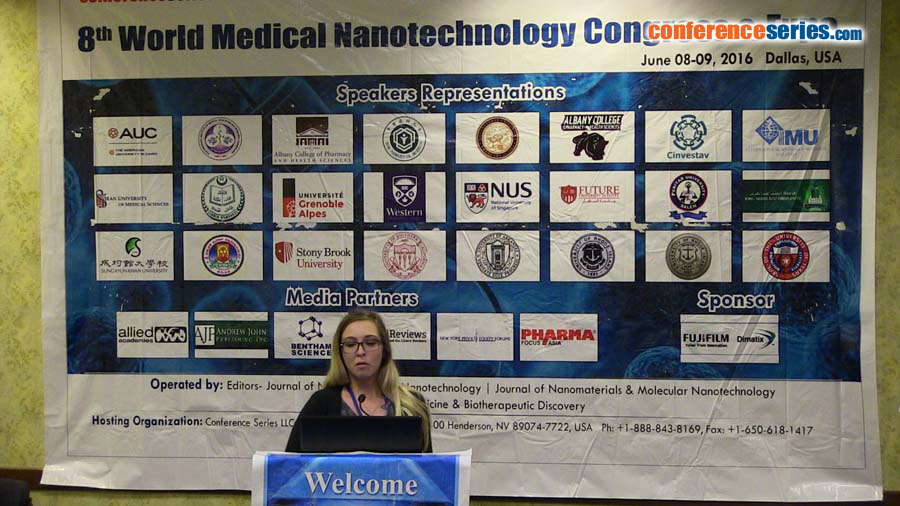
Miranda N Hurst
Kansas State University, USA
Title: Two Dimensional Fluorescence Difference Spectroscopy (2D FDS) to characterize nanoparticles and their interactions
Biography
Biography: Miranda N Hurst
Abstract
Splice Switching Oligonucleotides (SSOs) are a class of antisense RNA that directly modulates pre-mRNA splicing. SSOs require a delivery vehicle to reach the nucleus such as nanoparticles. An assay has been developed using cancer cells stably transfected with luciferase reporter gene that is interrupted by human ï¢-globin intron. This construct results in production of non-functional luciferase protein. Upon successful nuclear delivery of 705 SSO, the intron is correctly spliced out resulting in expression of functional luciferase76. We analyzed nanoparticle delivery of SSO to cancer cells. We observed that Co3O4 (size < 100 nm) displayed the highest payload (83 nM SSO per mM nanoparticle). Binding constants were evaluated by UV-vis absorption (2.2 x 106 M-1) and fluorescence spectroscopies (2.128 x 106 M-1). Nanosight and DLS analyses indicate increase in NP size upon complexation. Positive zeta potential of Co3O4 shifts towards the negative indicating electrostatic interaction. First generation nanoparticles were screened for SSO delivery to A375 pLuc cells measuring photoluminescence. Cobalt oxide was found to deliver SSO in a dose-dependent manner. Cytotoxicity evaluation against HEK cell lines indicates 100% cell viability after 24 hrs of Co3O4 treatment. Significant increase in splicing correction as compared to the control was observed by RT-PCR and gel electrophoresis. Binding, uptake and delivery is being further evaluated by multiple microscopy methods. Overall, these results support our claim that unmodified Co3O4 nanoparticle mediated SSO delivery corrects RNA splicing and restores active Luciferase expression.


